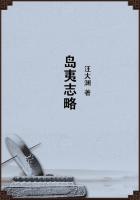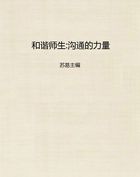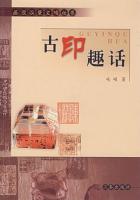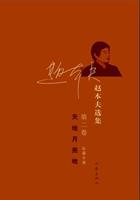"Yes," he said. "The distances saved us. The Germans were frightened of them, at the time when they could indeed have eaten us up, and won peace, which the Allies would have given them in gratitude for our destruction. A revolution in England would have nowhere whither to retire."Of the Soviets he said, "In the beginning I thought they were and would remain a purely Russian form; but it is now quite clear that under various names they must be the instruments of revolution everywhere."He expressed the opinion that in England they would not allow me to tell the truth about Russia, and gave as an example the way in which Colonel Robins had been kept silent in America. He asked about Robins, "Had he really been as friendly to the Soviet Government as he made out?" I said, "Yes, if only as a sportsman admiring its pluck and courage in difficulties." I quoted Robins' saying, "I can't go against a baby I have sat up with for six months. But if there were a Bolshevik movement in America I'd be out with my rifle to fight it every time." "Now that," said Lenin, "is an honest man and more far-seeing than most. I always liked that man." He shook with laughter at the image of the baby, and said, "That baby had several million other folk sitting up with it too."He said he had read in an English socialist paper a comparison of his own theories with those of an American, Daniel De Leon. He had then borrowed some of De Leon's pamphlets from Reinstein (who belongs to the party which De Leon founded in America), read them for the first time, and was amazed to see how far and how early De Leon had pursued the same train of thought as the Russians. His theory that representation should be by industries, not by areas, was already the germ of the Sovietsystem. He remembered seeing De Leon at an International Conference. De Leon made no impression at all, a grey old man, quite unable to speak to such an audience: but evidently a much bigger man than he looked, since his pamphlets were written before the experience of the Russian Revolution of 1905. Some days afterwards I noticed that Lenin had introduced a few phrases of De Leon, as if to do honour to his memory, into the draft for the new programme of the Communist party.
Talking of the lies that are told about Russia, he said it was interesting to notice that they were mostly perversions of truth and not pure inventions, and gave as an example the recent story that he had recanted. "Do you know the origin of that?" he said. "I was wishing a happy New Year to a friend over the telephone, and said 'And may we commit fewer stupidities this year than last!' Some one overheard it and told some one else. A newspaper announced Lenin says we are committing stupidities' and so the story started."More than ever, Lenin struck me as a happy man. Walking home from the Kremlin, I tried to think of any other man of his calibre who had had a similar joyous temperament. I could think of none. This little, bald-headed, wrinkled man, who tilts his chair this way and that, laughing over one thing or another, ready any minute to give serious advice to any who interrupt him to ask for it, advice so well reasoned that it is to his followers far more compelling than any command, every one of his wrinkles is a wrinkle of laughter, not of worry. I think the reason must be that he is the first great leader who utterly discounts the value of his own personality. He is quite without personal ambition. More than that, he believes, as a Marxist, in the movement of the masses which, with or without him, would still move. His whole faith is in the elemental forces that move people, his faith in himself is merely his belief that be justly estimates the direction of those forces. He does not believe that any man could make or stop the revolution which he thinks inevitable. If the Russian revolution fails, according to him, it fails only temporarily, and because of forces beyond any man's control. He is consequently free with a freedom no other great man has ever had. It is not so much what he says that inspires confidence in him.It is this sensible freedom, thisobvious detachment. With his philosophy he cannot for a moment believe that one man's mistake might ruin all. He is, for himself at any rate, the exponent, not the cause, of the events that will be for ever linked with his name.















